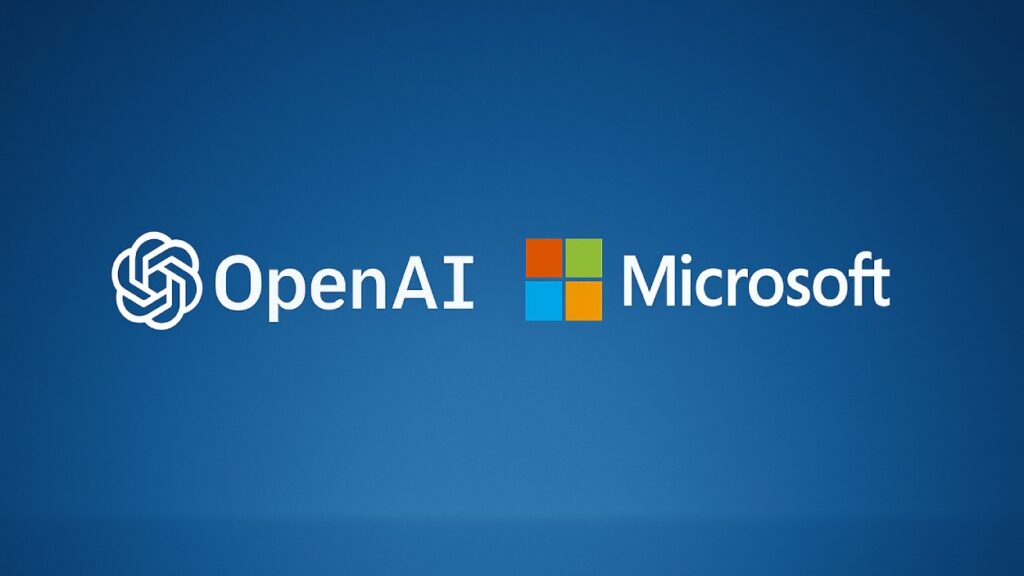OpenAI has reached a tentative agreement with Microsoft that allows the ChatGPT maker to move forward with restructuring its organization and redefining the rules of one of the most closely watched tech partnerships.
TLDR:
- OpenAI and Microsoft signed a non-binding agreement to revise their partnership.
- This move gives OpenAI the green light to restructure into a more traditional for-profit model.
- The restructuring aims to support OpenAI’s massive funding and computing needs.
- Regulatory approvals are still pending, with scrutiny from California and Delaware officials.
What Happened?
OpenAI and Microsoft announced a non-binding memorandum of understanding that will reshape their multi-billion dollar partnership. This step marks a major shift for OpenAI, giving it more freedom to restructure its business as it seeks additional investment and cloud partners.
Although specific terms were not disclosed, the agreement reflects months of negotiations amid growing tensions and competing interests between the two companies.
OpenAI and Microsoft have signed a non-binding memorandum of understanding (MOU) for the next phase of our partnership.
— OpenAI Newsroom (@OpenAINewsroom) September 11, 2025
We are actively working to finalize contractual terms in a definitive agreement. Together, we remain focused on delivering the best AI tools for everyone,…
OpenAI’s Unconventional Structure Faces a Shake-Up
Since its founding, OpenAI’s structure has been anything but typical. Originally launched as a nonprofit, the company later formed a capped-profit subsidiary to accommodate major investments, most notably from Microsoft. While that structure helped attract billions, it also introduced limitations as OpenAI’s ambitions and costs ballooned.
- OpenAI is now aiming to restructure itself as a public benefit corporation. This model allows the company to pursue objectives beyond shareholder profit, maintaining its nonprofit roots while making room for private capital.
- Chairman Bret Taylor confirmed the nonprofit will continue to control the for-profit entity, and it now holds a stake valued at more than $100 billion, roughly 20 percent of OpenAI’s projected $500 billion valuation.
Microsoft Invests Big but Shares Control
Microsoft has invested more than $13 billion in OpenAI since 2019, including a $10 billion infusion in early 2023. In return, it gained exclusive rights to sell OpenAI’s software tools through its Azure cloud platform and had preferred access to its models.
But as OpenAI grew, friction emerged:
- Disputes over revenue sharing, governance, and equity stakes put strain on the alliance.
- There were concerns about Microsoft’s level of access to OpenAI’s intellectual property.
- Microsoft’s role as exclusive compute provider was dialed back this year, allowing OpenAI to pursue large-scale cloud deals with Oracle and Google, including a massive $300 billion agreement for computing capacity tied to its Stargate project.
The latest agreement gives Microsoft continued access to OpenAI’s technologies, even in scenarios where OpenAI might declare it has achieved Artificial General Intelligence. That clause had previously threatened to end the deal under older terms.
Restructuring Tied to Major Financial Goals
OpenAI’s desire to restructure is not just about governance. It’s also about securing the trillions of dollars in potential investment it says it will need to meet future AI demands.
- The company wants to go public and open the door to a broader range of investors.
- Without restructuring, it risks losing billions in existing funding tied to governance changes.
But it’s not just about investors. OpenAI is actively trying to expand its computing capacity and meet skyrocketing demand for its models and services, with cloud partnerships playing a key role.
Regulatory Review Still in Play
While both companies are moving forward, the deal is still subject to regulatory approval. Attorneys general in California and Delaware are reviewing OpenAI’s plans, especially given the size of the nonprofit’s stake and the potential implications for tax status and governance.
Critics, including charitable institutions and nonprofit watchdogs, have expressed concerns and urged regulators to block or closely scrutinize the changes.
What TechKV Thinks?
I think this deal was long overdue. OpenAI had clearly outgrown its original structure, and Microsoft needed more clarity and security for its massive investments. From a business point of view, this is a win-win. OpenAI gets flexibility and a path to massive new funding, while Microsoft locks in access to the tech it helped bring to market. That said, the blurred lines between nonprofit ideals and trillion-dollar market ambitions still feel a bit awkward. Regulators are right to look closely, but innovation moves fast, and this deal clears a lot of the fog.
